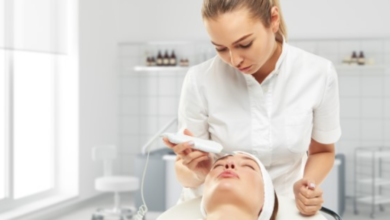The Truth About Fertility Treatments and Pregnancy in PCOD

If you’re struggling with PCOD and dreaming of motherhood, you’re not alone, and you’re certainly not without options. For many women, pregnancy in pcod feels like a waiting game filled with hormone tests, irregular cycles, and way too much Googling.
You’ve probably heard confusing things:
“It’s impossible to get pregnant naturally.”
“IVF is your only option.”
“Just lose weight and it’ll happen.”
But here’s the truth: While PCOD (Polycystic Ovarian Disease) does make conception more challenging, it doesn’t make it impossible. With the right medical care, lifestyle support, and a realistic plan, many women with PCOD go on to have healthy, successful pregnancies.
We spoke with experts from a leading fertility center in noida to unpack the realities, what treatments actually work, what to expect, and how to navigate the emotional rollercoaster that comes with this condition.
Let’s break it down.
What Is PCOD and How Does It Affect Fertility?
Polycystic Ovarian Disease is a hormonal condition where the ovaries produce higher-than-normal levels of androgens (male hormones). This disrupts the normal ovulation cycle, which is key to conception.
Common symptoms include:
- Irregular or absent periods
- Excessive hair growth
- Acne
- Weight gain or difficulty losing weight
- Multiple small cysts in the ovaries (seen on ultrasound)
The biggest fertility hurdle with PCOD is irregular ovulation or no ovulation at all. No ovulation means no egg release, and that directly impacts your chances of natural conception.
Can Women with PCOD Get Pregnant Naturally?
Yes, and many do. But it typically takes longer and more strategic care compared to women without PCOD.
According to doctors at a top fertility center in Noida, women under 30 with mild PCOD and a healthy lifestyle may conceive without intervention. However, if irregular ovulation persists for more than 6–12 months, medical assistance is often recommended.
It’s important to note: pregnancy in PCOD may require more planning, patience, and personalized treatment, but it’s possible.
First Steps: Diagnosis and Basic Lifestyle Changes
Before any treatment begins, your doctor will recommend a full fertility workup, including:
- AMH (Anti-Müllerian Hormone) Test
- Transvaginal ultrasound
- Thyroid and insulin resistance tests
- Semen analysis (for your partner)
Once PCOD is confirmed as the main issue, the first recommendation is usually lifestyle correction. Many women with PCOD are insulin resistant, which leads to weight gain and further hormonal imbalance.
What helps:
- Losing 5–10% of body weight (if overweight)
- Eating low-GI, anti-inflammatory foods
- Moderate exercise (like brisk walking, yoga, or strength training)
- Stress management (cortisol imbalance worsens PCOD)
Many fertility centers in noida prioritize this step before starting medication, and with good reason. Studies show that even minor weight loss can restart ovulation in women with PCOD.
Ovulation Induction: First-Line Fertility Treatment
If natural methods don’t work, the next step is ovulation induction using medications like:
- Clomiphene Citrate (Clomid)
- Letrozole (Femara)
These help stimulate the ovaries to release eggs. Monitoring is done via ultrasound to ensure proper follicular development. Once an egg matures, a timed intercourse or IUI (Intrauterine Insemination) procedure may be suggested.
Doctors at a leading fertility center in noida report that 60–70% of PCOD patients conceive using ovulation induction + IUI, especially if they are under 35 and don’t have additional complications like blocked tubes or male factor infertility.
IVF and Advanced Fertility Treatments
If ovulation induction fails after 3–6 cycles, your doctor may recommend IVF (In Vitro Fertilization).
IVF involves retrieving eggs, fertilizing them in a lab, and transferring the resulting embryo back into the uterus. For women with PCOD, IVF success rates can be very promising, especially when:
- Egg quality is good
- Hormone protocols are well-adjusted
- Embryo freezing and single-embryo transfer are considered to avoid OHSS (Ovarian Hyperstimulation Syndrome)
Top fertility centers in Noida use advanced IVF protocols specifically designed for PCOD patients, minimizing risk and optimizing success.
Managing Emotional Health During PCOD Treatment
Let’s be honest: pregnancy in PCOD is not just a medical journey, it’s an emotional one too.
You’re dealing with delayed timelines, hormonal mood swings, sometimes invasive procedures, and constant uncertainty. That’s why the best fertility specialists stress the importance of:
- Emotional support (therapy, support groups, couples counseling)
- Honest communication with your doctor
- A long-term mindset, instead of expecting instant results
Remember: it’s okay to feel overwhelmed, but you don’t have to go through it alone.
Read Also: Top Reasons To Switch To The H2Nano Hydrogen Water Bottle Today
Final Tips for Boosting Pregnancy Success in PCOD
- Start early if you’re planning for children
- Track ovulation patterns using apps or OPKs
- Don’t ignore PCOD symptoms, even if they seem minor
- Choose a clinic that offers customized care, not one-size-fits-all treatment
- Stay consistent with lifestyle changes even during treatment cycles
Conclusion: Empowerment Through Education and Support
Pregnancy in PCOD isn’t a straight road, but it’s not a dead end either. With timely intervention, expert guidance, and the right mindset, many women successfully overcome the challenges of PCOD and become parents.
If you’re feeling confused or overwhelmed, a trusted fertility center in noida can help guide you through every phase from testing and planning to treatment and pregnancy support.
It’s not about quick fixes, it’s about building the right foundation, step by step, with people who understand the path you’re on.
You don’t have to navigate it alone. With the right help, hope is more than just a word, it’s a plan.
FAQs
Q1: Can I get pregnant naturally with PCOD?
Yes, many women with PCOD conceive naturally, especially with lifestyle changes and ovulation tracking.
Q2: What’s the best fertility treatment for pregnancy in PCOD?
Ovulation induction is the first line of treatment. IVF may be considered if initial methods don’t work.
Q3: Is PCOD curable before pregnancy?
PCOD isn’t “curable” but can be managed effectively with the right medical and lifestyle support.
Q4: How can a fertility center in Noida help with PCOD-related infertility?
They offer customized care, accurate diagnosis, hormone regulation, and support through each fertility phase.
Q5: Is IVF the only option for pregnancy in PCOD?
Not always. Many women succeed with medication and IUI. IVF is usually recommended after other methods are exhausted or if additional issues exist.





